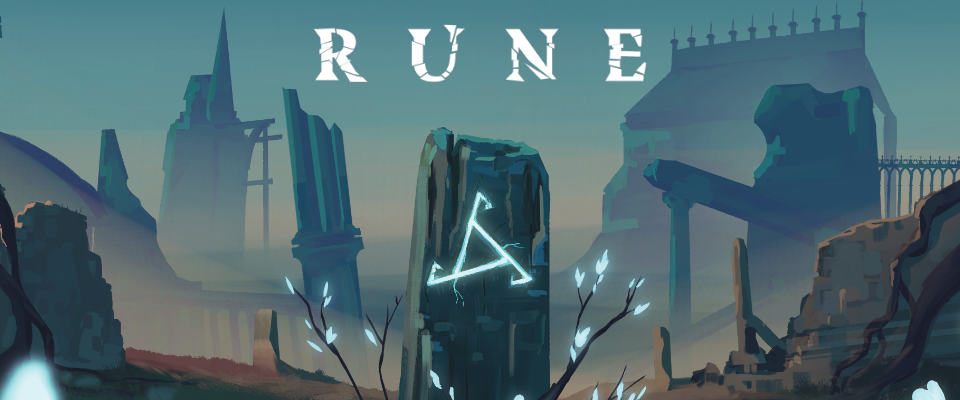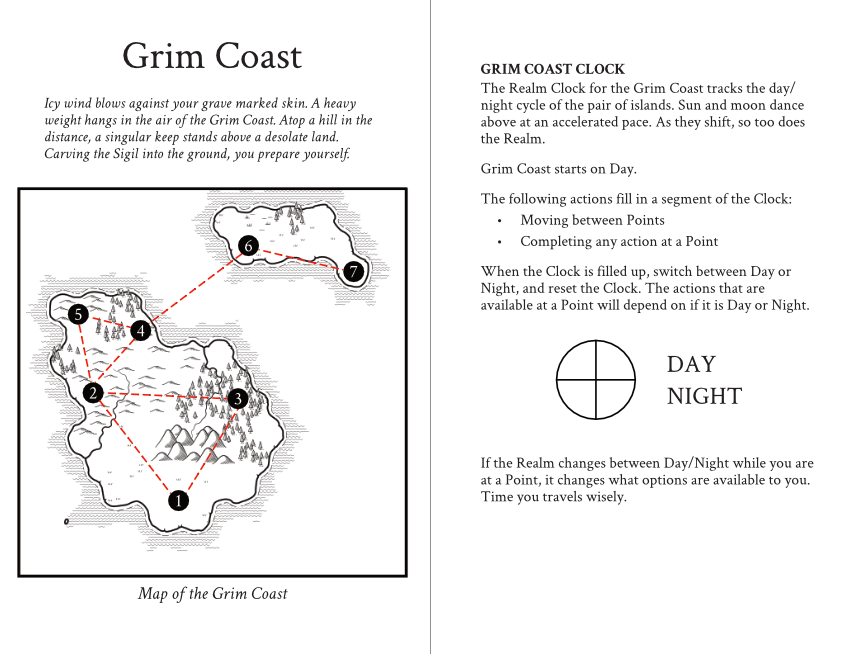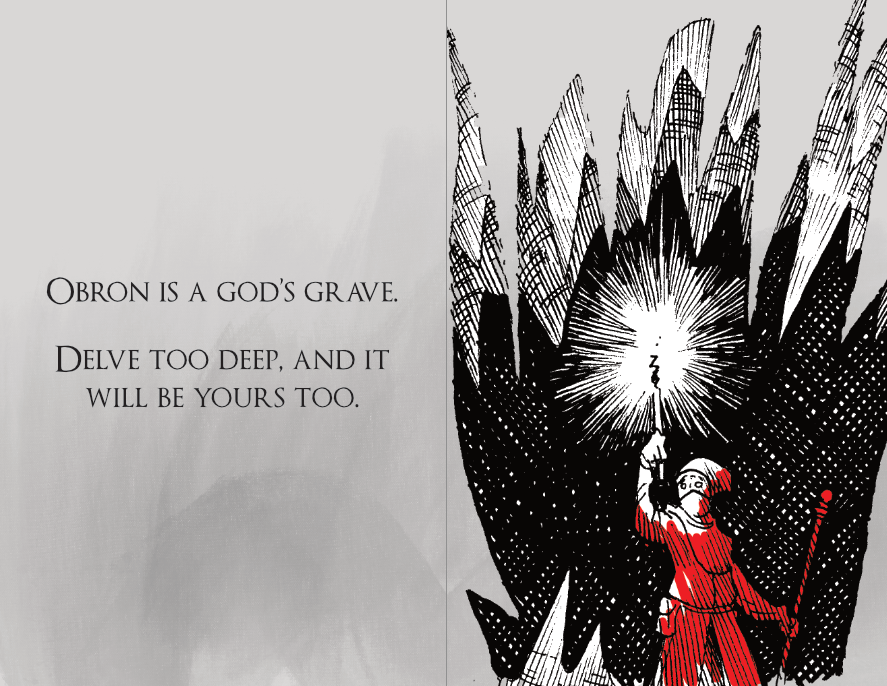Rune - a souls-like solo RPG
 |
| My first independent tabletop RPG, bought through itch.io |
Since taking an interest in solo roleplaying, I stumbled across this video from Geek Gamers. Not a native to the independent RPG scene or itch.io, I am grateful to Geek Gamers for surfacing RUNE, by Gila RPGs, a solo experience that is clearly drawing on inspiration from the Dark Souls series.
What is RUNE? Let's hear directly from the developer:
RUNE is a solo tabletop RPG inspired by the soulslike genre of video games, including Dark Souls, Bloodborne, and Elden Ring.
In RUNE, you are a wanderer of the lands of Obron. The world is dangerous, but full of power if you are willing to reach out and take it.
RUNE combines narrative exploration with tactical combat to capture the environmental storytelling and high stakes combat you love in soulslike games.
As a huge Souls fan, I was keen to check out RUNE and see whether it could deliver some of what I love about the video games - challenge, mystery, and replayability.
My play experience
As far as tabletop RPGs go, RUNE is very rules-light and fast to set up. Character customisation is all gear-driven, and the nature of the play changes significantly if you choose more of a sword and board style loadout versus one with ranged or magic attacks and more mobility. You can also equip runes, which grant special abilities, and you can acquire new equipment, spells and runes as you play.
 |
| Meet Eadwold the Engraved, Paragon of the Flame |
It doesn't require any character backgrounds, but I chose a very lightweight construct to help me connect to the play.
My character, Eadwold, is a magical warrior that uses part of his life force to destroy enemies and defy fate, but also heals again thanks to a precious amulet. Eadwold might have been a priest, paladin or templar in his former life, worshipping the flame.
Here is Eadwold's starting equipment:
As players find themselves facing off against the horrors that wander Obron, they enter Combat. Combat in RUNE is tactical, and takes place on a 4x4 grid. Enemies have movesets that are determined by dice rolls, telegraphing their intentions and giving you a moment to react. Players roll a Stamina pool and assign the dice to their weapons and other equipment, deciding the right reaction to the situation. Combat in RUNE is tense, dangerous, and a puzzle for the player to solve.
The other half of the game is exploration of the short, self-contained levels called Realms. The game comes with seven in total. To give you some flavour, see an example below:
 |
| Grim Coast, the starter Realm, includes a day night cycle that changes the state of each location |
Exploration is limited - moving between locations and choosing between the FIGHT, SEARCH, DELVE actions that are described in the Realm Atlas will yield consumables or LORE, a special stat that unlocks locations or reduces the challenge in some way. But each move and action ticks the realm clock along one, and each realm has its own consequences as the clock progresses. Do you uncover every stone to give you every advantage, or make a bee-line for the climactic encounter? Since death sees you rise again back at the starting location with most enemies respawned, there is a risk vs reward trade-off that does feel very Souls-like.
As far as the opposing forces in Obron go, there are regular enemies (which respawn on death), unique enemies (with special powers) and Rune Lords (the bosses of the realm). Defeating the Rune Lord yields a new rune, of which the character can carry up to three. The player is also free to move between realms at any time if they get blocked, much like Elden Ring's open world allows you to move into another area if you can't beat the boss where you are, allowing you to come back with new power and finish what you started.
What I liked
Simplicity and ease of setup
You don't need a lot of time to learn the rules and get started in RUNE, and that is refreshing after playing D&D 5E and many other complex tabletop RPGs. Exploration barely takes any time at all, and combats can be finished in about 10-15 minutes each. Once you're familiar with the structure, you can easily start playing and make substantial progress in 30 minute sessions.
The tone
 |
| Image by Gila RPGs |
Given my love for the source material that inspired it, the desolate tone and mysterious world of RUNE definitely appeals to me. The rulebook is full of simple but evocative imagery, and the sparse narrative that is there helps to get you in the mood of a solo adventurer, facing lethal challenge in a crumbling world. Listening to the Dark Souls game soundtracks whilst playing is entirely optional...
Puzzle-like combat
I really loved the combat in RUNE - it felt like a mix of Chess and D&D. A small tactical map with limited movesets and abilities that depend on dice rolls leads to satisfying tactical decisions each turn as you attempt to vanquish your enemies. It feels like a puzzle to solve as you chart the optimal path through the encounter.
Replayability
This game is designed to be replayable - it is even built into the core loop - explore, fight, die and be respawned. You will die, and then take the opportunity to change gear and tactics before challenging the same foes again. And a new loadout equals a new gameplay experience, making even the same realm replayable. Finally, if you're done with the seven realms (I ran through three of these) the itch.io community has created a bunch more to keep your journey through the shattered realms of Obron alive.
Concerns I had
Plays like a board game
To be clear, I love board games! So for me personally, the fact that Rune plays a lot like one is not a major concern. But compared to playing other tabletop RPGs with solo rules, RUNE feels much more like a streamlined, contained experience with little opportunity to roleplay built in. Unless you create your own narrative as you play, you'll be taking turns and rolling dice and moving mechanically through the world with little in the way of storytelling.
Complete knowledge
Which leads to the second concern, one which is common when playing tabletop RPGs solo - there are no surprises here. When you arrive in a location, you are given all the information before you make your choice. You can weigh up whether taking the DELVE action is worth it by reading both what the challenge and the reward is, and measure that up carefully against taking another tick on the realm clock. In the Dark Souls games that inspired RUNE, information is a reward in and of itself, one you only get after first taking the risk. If you die but you learned something, that is intrinsically valuable. In RUNE, once you've explored all locations in the realm, you have perfect information with which to execute your strategy, leaving little room for chance except in the dice rolls of combat.
What I would bring to other RPGs
As I embark on this quest to explore the wide array of content available in my 2023 RPG Crawl, I always have a mind to what I can bring back (ie. steal) for my main D&D 5E campaigns with my group. From RUNE, I have noted the following:
- A clock mechanic that changes the world state
- Some of the themes and enemies of the realms themselves might just make an appearance
- A respawn mechanic with consequences
To the last point above, I am not sure I would want to bring a die and return to the start with full health and enemies respawn type mechanic as-is - it probably wouldn't be fun. But maybe for a particular mission, or in a particular location, it could be fun to adapt the spirit of the mechanic.
In summary
Would I play it some more? Yes, especially if I had limited time to play or didn't feel like learning something new, I would definitely come back to Eadwold's adventures.
Overall I had a great time with RUNE, and would recommend to any Souls fans that also like board games or tabletop RPGs and want to immerse themselves in a grim dark world without a lot of preparation. Wake now, accursed engraved...
 |
| Image by Gila RPGs |

Comments
Post a Comment